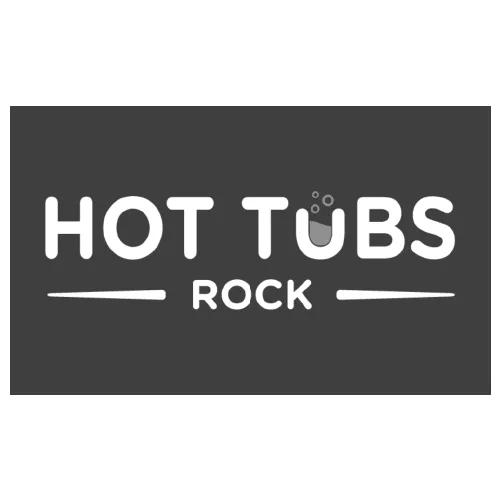
No items found.
The Approved Code of Practice (ACOP) section L8 is the Health and Safety Executive’s (HSE) guide to the responsibilities to manage Legionella hazards, including when to conduct Legionella risk assessments and what to do in response to the results.
In this guide, we’re going to cover more on what the ACOP L8 is, as well as what HSG274 is, how often L8 Legionella risk assessments are required, who needs them, why they are necessary and other important resources. You can access your own free copy of the ACOP L8 here, or for more information and advice, just call our expert team on 0800 358 110.
The ACOP L8 is the HSE’s guide to managing the hazards of Legionella bacteria in water systems. It contains best practice information on everything from Legionella risk assessments and record keeping to who is responsible for managing compliance with Legionella control legislation at a given property.
L8 itself is not legislation, but it is considered best practice, and employers and building operators are widely expected to adhere to it as a means of demonstrating their legal compliance. Failure to abide by it can lead to non-compliance with binding legislation such as the Health and Safety at Work Act. Inspectors will also normally use ACOP L8 as a framework for their inspections, and if you have not used it as a guide for your compliance, you will need to demonstrate some other form of adherence to the law.
HSG274 is a collection of three technical documents, designed to complement the L8 Legionella guidelines. L8 is the codex of rules and responsibilities for Legionella compliance and HSG274 is the detailed instruction manual for how to control Legionella bacteria in a range of water systems. It covers:
Control of Legionella in evaporative cooling systems
Managing Legionella in hot and cold water systems
Additional risk areas such as spas and pools
ACOP L8 applies to ‘duty holders’, who are those responsible for operating a business or managing a property with a water system, such as landlords and property managers. According to L8, duty holders have a range of responsibilities, including:
L8 Legionella risk assessments:
The duty holder must ensure Legionella risk assessments are conducted, and that they are reviewed following any changes to the system or events that could cause the previous assessment to be considered no longer valid.
Control measures:
Where risks are identified within a system, control measures should be drawn up and adhered to in order to prevent the growth and spread of Legionella bacteria. These can include steps such as temperature control, or, where practicable, avoiding the use of hazardous sections of the system until they can be suitably improved.
Monitoring and record keeping:
Your system should be routinely monitored and records of all actions taken should be kept to demonstrate compliance, including L8 Legionella risk assessments and treatments.
Appointing a ‘responsible person’:
It is advised that the duty holder should appoint a ‘responsible person’ to help manage the day-to-day oversight of Legionella compliance at a property or business. This person should be competent and adequately trained to undertake their duties and can be from within the business or brought in from an external service provider.
According to the ACOP L8, Legionella risk assessments should be reviewed “[…] regularly and specifically where there is reason to believe that the original risk assessment may no longer be valid. You should also review management and communication procedures as appropriate.”
In short, you should update your risk assessment:
Regularly at set intervals
Following any changes to your water system
As the use of a site changes and the water system ages, Legionella risks can evolve, so making sure your property is routinely assessed is important.
According to L8, there is a selection of individuals who need Legionella risk assessments:
Business owners
Landlords
Property owners
Property managers
Anyone responsible for the management of a building with a water system
The risk assessment should be carried out by a competent person. While it is theoretically possible to conduct your own Legionella risk assessment, you must be properly trained and competent. It is advisable to contact an expert water hygiene consultancy to carry out your risk assessment. This is the best way to ensure your compliance with legislation as well as protect occupants of your building from Legionella exposure.
ACOP L8 states that “A suitable and sufficient assessment must be carried out to identify and assess the risk of exposure to Legionella bacteria from work activities and water systems on the premises and any precautionary measures needed.”
Ultimately, the intention of the risk assessment is to protect building occupants from the potential harm caused by exposure to Legionella bacteria.
There is a range of places and sections of water systems that L8 Legionella risk assessments cover, including:

Hot water systems

Cold water systems

Cooling equipment

Evaporative towers

Spa pools

Swimming pools

Showers

Sprinklers

Vehicle washing equipment

Spray humidifiers, air washers, misters and other sources of water vapour

Fountains and other ornamental water features

And more
HSG274 – Describes methods for how to control Legionella in a range of systems.
The Health and Safety at Work Act, 1974 – Ensures the provision of safe working conditions, and covers the control of Legionella in workplace water systems.
Control of Substances Hazardous to Health (COSHH) Regulations – Lays out the requirements to prevent the growth of Legionella in the workplace.
BS 8580-1:2019 - The code of practice for how Legionella risk assessments should be conducted.
EMS Water is a dedicated water hygiene consultancy, offering a straightforward route to compliance with ACOP L8 guidelines. Our expert team has years of experience and operates across the centre of the UK, including
- Legionella risk assessments in Manchester
- Legionella risk assessments in West Midlands
- Legionella risk assessments in Liverpool
- Legionella risk assessments in South Wales.
- Worcestershire, Herefordshire and Wales.
We provide BS 8580-1:2019 compliant L8 Legionella risk assessments as well as a wide range of other services including Legionella disinfection to help you meet your requirements. To learn more about our services or your legal responsibilities, just speak to our expert team by calling 0800 358 110, emailing info@emswater.co.uk or filling out our contact form.



